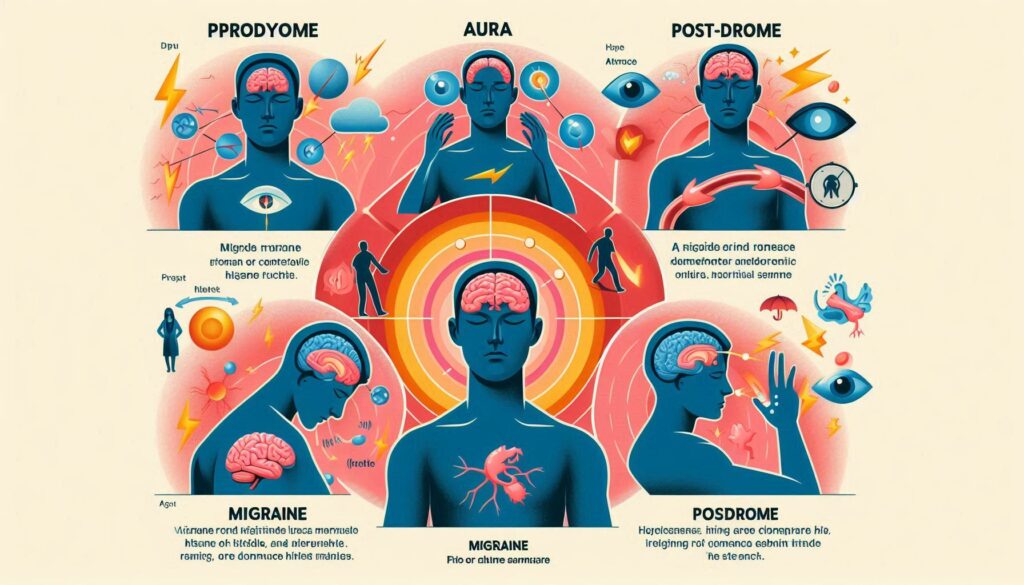
Migraine headaches are more than just bad headaches—they are a neurological disorder that affects millions of people globally. Whether you’re a student burning the midnight oil or a software engineer staring at screens all day, migraines can severely impact your daily life. This post will help you understand why migraines happen, their stages, and the best ways to treat and prevent them.
🔍 What Causes Migraine Headaches?
Migraines are often triggered by a variety of factors. Some of the most common causes include:
- Stress or anxiety
- Lack of sleep
- Hormonal changes (especially in women)
- Bright lights or loud sounds
- Skipped meals
- Certain foods (e.g., aged cheese, caffeine, alcohol)
These triggers cause chemical changes in the brain that activate the pain pathways, especially in people who are genetically predisposed.

🌀 How Many Stages Are There in a Migraine?
Migraines typically unfold in four distinct stages:
- Prodrome (Pre-Headache Phase)
Symptoms: Fatigue, food cravings, mood changes - Aura (Optional Phase)
Symptoms: Visual disturbances, blind spots, flashes of light - Attack (Headache Phase)
Symptoms: Intense throbbing pain, nausea, light and sound sensitivity - Postdrome (Recovery Phase)
Symptoms: Confusion, dizziness, exhaustion

🌿 Natural Remedies for Migraine Pain Relief
While medication is important, natural solutions can also significantly reduce the frequency and intensity of migraine attacks:
- Stay hydrated throughout the day
- Maintain a regular sleep schedule
- Use essential oils like peppermint and lavender
- Practice yoga and meditation
- Apply cold compress or ice pack to the forehead

💊 Medical Treatments for Migraine Relief
If lifestyle changes and home remedies aren’t enough, here are common medications:
- Over-the-counter painkillers: Ibuprofen, acetaminophen
- Prescription Triptans: Sumatriptan, Rizatriptan
- Preventive medications: Beta blockers, antidepressants, anti-seizure drugs
- Botox injections: Approved for chronic migraine sufferers
Always consult a neurologist before beginning any treatment.
🚫 How to Prevent Migraine Attacks
Preventive care is crucial to reduce the frequency and severity of attacks. Follow these tips:
- Identify and avoid triggers (food, stress, lights)
- Keep a migraine diary to track patterns
- Eat balanced meals at regular intervals
- Limit screen time and use blue light filters
- Regular physical activity like walking or yoga
✅ Is Migraine Curable Permanently?
There is currently no complete cure for migraines, but with the right mix of:
- Medical treatment
- Lifestyle changes
- Dietary control
- Stress management
…many people can effectively control or even eliminate their migraine attacks over time.
📌 Conclusion
Migraines can be debilitating—but they don’t have to rule your life. By understanding the causes, identifying the stages, and applying both natural and medical solutions, you can take control of your health. Early action, consistent habits, and professional guidance are the keys to managing migraine pain.







